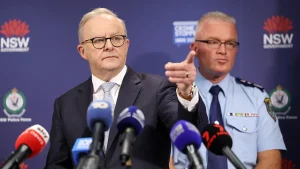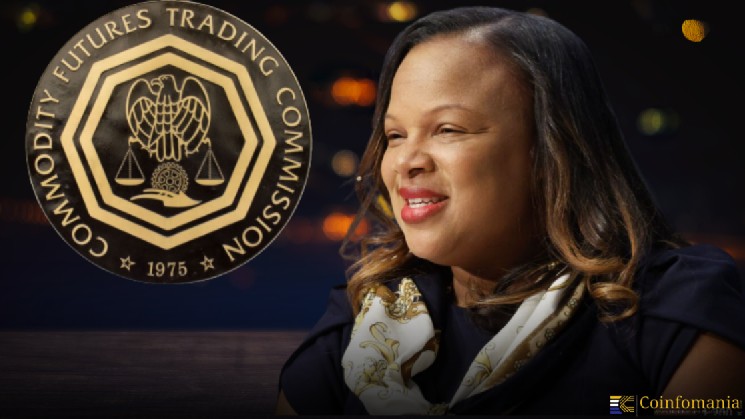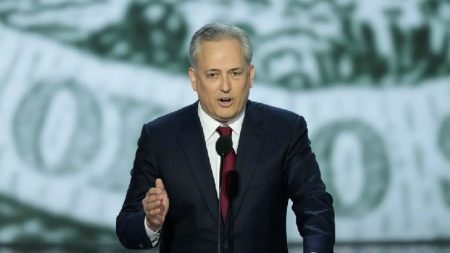Leadership Vacuum at the CFTC: Regulatory Challenges Loom Amid Commissioner Exodus
Commission Faces Critical Staffing Shortfall as Johnson Announces Departure
The Commodity Futures Trading Commission (CFTC), a cornerstone of America’s financial regulatory framework, stands at a precarious crossroads as it confronts an unprecedented leadership crisis. Kristin Johnson, the commission’s sole Democratic voice, recently announced her resignation effective September 3, 2025, triggering alarm across financial markets and policy circles. This departure will leave the five-seat commission with just one acting commissioner, Republican Caroline Pham, creating a regulatory vacuum at a time when cryptocurrency markets, derivatives trading, and commodities oversight demand robust and decisive leadership.
The timing of Johnson’s exit couldn’t be more consequential for market stability and regulatory continuity. Since its establishment following the 2008 financial crisis, the CFTC has evolved into a crucial watchdog overseeing derivatives markets worth hundreds of trillions of dollars. Its jurisdiction has expanded to include emerging digital asset classes and complex financial instruments that pose novel risks to market integrity. Johnson, whose expertise in financial technology and commitment to consumer protection earned her respect across partisan lines, leaves behind a substantial void in the commission’s intellectual capital. Her departure signals more than a routine personnel change—it represents a fundamental challenge to the agency’s ability to fulfill its congressional mandate during a period of exceptional market volatility.
Historical Context and Structural Vulnerabilities
This leadership crisis didn’t materialize overnight. The CFTC has weathered previous periods of commissioner shortages, but veterans of financial regulation observe that the current situation is uniquely troubling. Historically, bipartisan appointments have ensured continuity even during presidential transitions, with staggered terms designed specifically to prevent the commission from falling below quorum requirements. However, the increasingly polarized confirmation process in the Senate has disrupted this carefully balanced system, creating extended vacancies that undermine the commission’s effectiveness.
“What we’re witnessing is unprecedented in the CFTC’s modern history,” explains Margaret Thornton, former counsel to the Senate Banking Committee. “The commission was deliberately structured to maintain operational continuity regardless of electoral cycles. This vacancy crisis reflects broader dysfunction in our regulatory appointment process.” The CFTC’s statutory requirements specify that no more than three commissioners may belong to the same political party, a provision intended to ensure balanced regulation but which has become a stumbling block amid congressional gridlock. Without sufficient commissioners, the agency faces severe limitations on its ability to issue new rules, approve enforcement actions, or respond to market emergencies—essentially rendering America’s derivatives watchdog toothless at a time when global financial markets face mounting uncertainties.
Market Implications and Industry Concerns
The ramifications of this leadership vacuum extend far beyond Washington’s regulatory corridors. Market participants—from traditional commodity producers to financial institutions and emerging fintech companies—depend on clear regulatory guidance to make investment decisions and compliance plans. The impending commissioner shortage creates profound uncertainty about regulatory direction, potentially freezing innovation and capital deployment across affected sectors.
“Markets abhor regulatory uncertainty even more than they dislike tough but clear rules,” notes James Harrington, chief regulatory officer at Global Financial Partners. “When firms can’t predict how rules will be interpreted or enforced, they typically postpone major investments and strategic decisions.” This hesitation could prove particularly damaging for emerging sectors like cryptocurrency and carbon markets, where regulatory frameworks remain under development. Industry associations have already begun lobbying congressional leaders to expedite commissioner nominations, warning that continued vacancies could drive financial innovation offshore to jurisdictions with more predictable regulatory environments. Meanwhile, consumer advocacy groups fear that an understaffed commission will struggle to protect market participants from fraud and manipulation, especially retail investors drawn to increasingly accessible derivatives trading platforms.
International Standing and Coordination Challenges
The CFTC’s leadership crisis also threatens America’s position in global financial regulatory coordination. As a principal member of the International Organization of Securities Commissions (IOSCO) and other multinational regulatory forums, the CFTC has historically shaped global standards for derivatives markets. This influence depends on having empowered commissioners who can negotiate authoritatively with foreign counterparts and implement harmonized approaches to cross-border regulation.
“Global markets require global coordination,” emphasizes Dr. Elena Mendoza, director of international financial regulation at Georgetown University. “When the CFTC operates without full leadership, it creates a vacuum that other jurisdictions—particularly the European Union and increasingly China—are eager to fill with their regulatory philosophies.” Recent years have seen growing divergence between U.S. and international approaches to crypto-asset regulation, climate-related financial disclosure requirements, and margin rules for uncleared derivatives. Without confirmed commissioners advancing American regulatory perspectives, this divergence may accelerate, potentially fragmenting global markets and imposing compliance burdens on multinational financial institutions. The European Securities and Markets Authority (ESMA) has already signaled its intention to move forward with several initiatives where it had previously coordinated closely with the CFTC, suggesting the leadership vacuum is already eroding American regulatory influence.
Political Dynamics and Confirmation Prospects
The path forward remains fraught with political complications. Traditionally, CFTC commissioners have been confirmed in bipartisan pairs, with presidents nominating individuals acceptable to senators from both parties. This custom has broken down in recent years as financial regulation became increasingly politicized, with nominees facing unprecedented scrutiny over their views on everything from climate risk disclosure to cryptocurrency supervision.
Senate Banking Committee insiders suggest that at least four potential nominees have withdrawn from consideration over the past eighteen months after concluding the confirmation process would be too lengthy and contentious. “The confirmation gauntlet has become so arduous that many qualified candidates simply refuse to subject themselves to it,” explains former CFTC Chairman Christopher Giancarlo. “We’re losing tremendous talent because of procedural dysfunction.” The upcoming presidential election further complicates the picture, as senators may be reluctant to confirm nominees months before a potential administration change. Some financial policy experts have proposed emergency legislation to allow the remaining commissioner to exercise limited powers during the vacancy crisis, but such measures face their own legislative hurdles in a divided Congress. Meanwhile, career staff at the CFTC continue managing day-to-day operations, though major policy decisions and enforcement actions requiring commission votes remain in limbo.
Future Scenarios and Reform Proposals
As market participants adapt to this uncertain regulatory landscape, several potential scenarios are emerging. In the optimistic case, mounting pressure from industry and consumer groups could break the confirmation logjam, leading to expedited approval of multiple commissioners. A more concerning possibility involves extended vacancies lasting well into 2026, potentially leaving the commission unable to respond effectively to market disruptions or emerging risks.
This crisis has sparked renewed discussion about structural reforms to the commission itself. Several former commissioners have advocated for changes to appointment procedures, including longer terms, staggered confirmations, and provisions allowing commissioners to serve until replacements are confirmed. “The current system clearly isn’t working,” argues financial regulatory scholar Elizabeth Warren Peterson. “We need to rethink how we staff these critical agencies to ensure they can function regardless of political headwinds.” Some reform proposals go further, suggesting consolidation of financial regulatory agencies to reduce confirmation bottlenecks and promote consistent oversight. Whatever path emerges, market participants, policymakers, and the public share a common interest in resolving this leadership vacuum. The integrity of America’s derivatives markets—and the financial system they support—depends on restoring effective regulatory oversight at the CFTC before market stresses test the limits of an understaffed commission.
As Johnson’s departure date approaches, the financial community watches anxiously to see whether Washington can overcome its dysfunction to preserve the regulatory framework that underpins market confidence. The resolution of this leadership crisis will reveal much about America’s commitment to robust financial oversight and its capacity to maintain regulatory institutions essential to market stability and economic growth.















